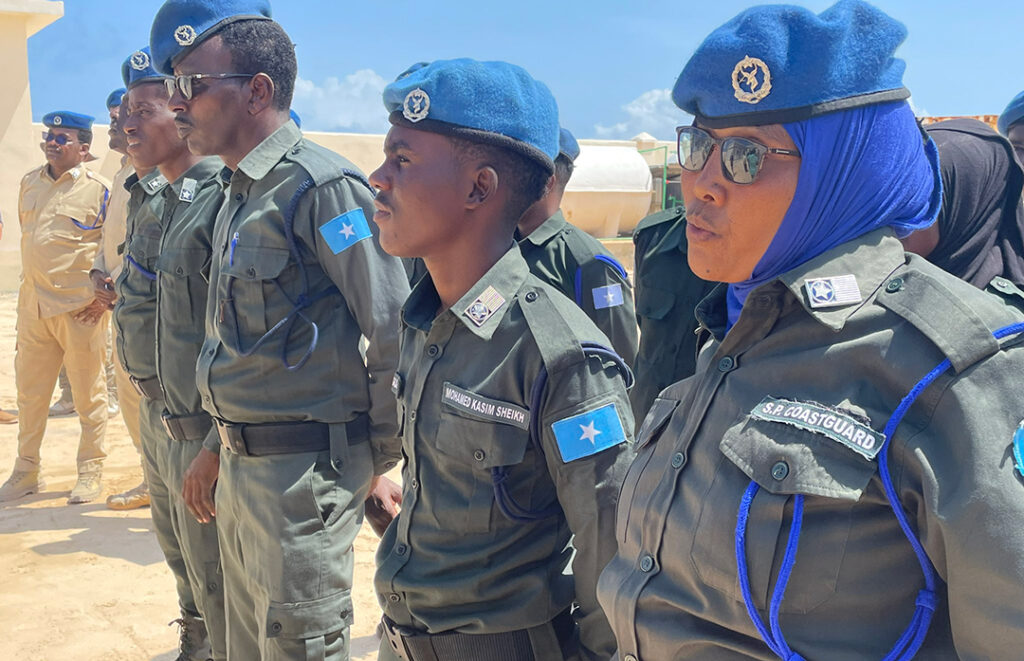ADF STAFF
Somalia bolstered its plan to increase security along its 3,333-kilometer coastline in early October when it opened a newly built maritime training center in Mogadishu.
Donated by the United States, the center will support training in a secure area that can be used by all levels of law enforcement and international partners. The U.S. has provided more than $3 million to support Somali-led maritime capacity building programs.
“The ocean needs to be protected – both the resources within it and the security on its surface. ,” Maj. Gen. Abdi Hassan Mohamed Hijaar, Somali police commissioner, said in a news release, “This is just one area where the United States is supporting the Somali Police Force.”
While piracy in Somali waters has decreased in recent years, incidents of illegal, unreported and unregulated (IUU) fishing have risen sharply. That has led to loss of income for the 70,000 people who work in the country’s fisheries, which contribute $135 million annually to the local economy, according to a newsecuritybeat.org report.
Somali officials say they’ve identified nearly 200 Iranian fishing crews poaching in Somalia’s territorial waters, threatening the nation’s economic and food security.
In a statement, Somalia’s Ministry of Fisheries and Marine Resources reported it had tracked Iranian fishing boats illegally entering Somalia’s territorial waters between January 2019 and April 2020. Other fleets fishing illegally in Somali waters are from Yemen and increasingly China, which has the world’s worst IUU fishing record, according to IUU Fishing Index.
The foreign vessels typically trawled in waters reserved for local artisanal fishermen.
“To protect the interests of the Somali people in the sustainable development of those resources, the government of Somalia, coordinating between multiple ministries at federal and state levels, requires the means to surveil, to monitor, and to enforce the law in its territorial waters,” U.S. Ambassador to Somalia Larry André said in the news release. “This training center will contribute to the Somali government’s effectiveness at carrying out that important responsibility.”
Last year, Somali authorities vowed to crack down on foreign vessels fishing illegally in the country’s waters. The government’s announcement was made weeks after Somalia’s territorial areas in the Indian Ocean were increased by the International Court of Justice. The ruling reduced areas of the ocean that previously belonged to Kenya.
The recent influx of Chinese fishing vessels in Somalia has resulted in abuse claims by Indonesian crew members hired to work on Chinese trawlers.
In August, four Indonesian workers jumped from a Chinese fishing vessel into Somali waters after they said they were beaten and starved. Three of them floated in the ocean for hours until they were picked up by the same boat. The fourth crew member drowned. Ghanaian and Kenyan sailors recently have made similar claims aboard Chinese fishing vessels.
The Indonesian crew members told the Environmental Justice Foundation that Chinese vessels routinely fish in Somalia without authorization and use illegal gear such as trawl nets.
Crew members also claimed that Chinese trawlers caught protected or endangered species such as whale sharks, dolphins and turtles, and that they were forced to remove the fins of sharks before tossing the rest of the bodies overboard, a practice the foundation characterized as “barbaric and wasteful.”

